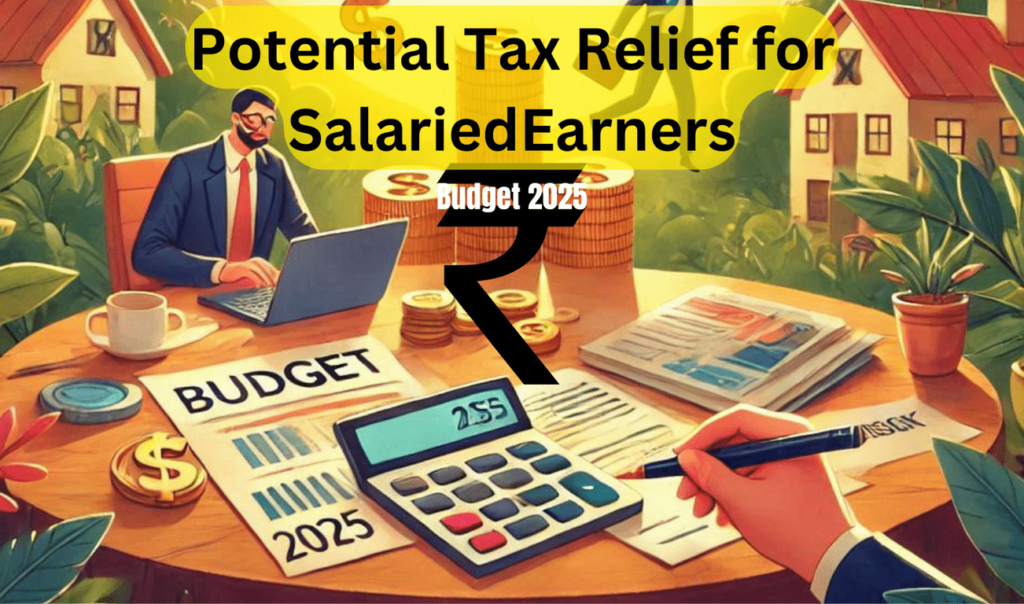Budget 2025: Potential Tax Relief for Salaried Earners

Quick Overview
The forthcoming Budget 2025-26 is poised to introduce significant tax benefits for salaried individuals earning up to Rs 15 lakh annually. This initiative aims to enhance disposable income, stimulate consumer spending, and address inflationary pressures affecting urban taxpayers.
Key Points
- Tax Benefits for Salaried Individuals: Proposed changes in the income tax structure are expected to alleviate the tax burden for individuals earning up to Rs 15 lakh.
- Revised Tax Slabs: The government may increase the basic exemption limit and adjust tax slabs to provide better benefits for middle-income earners.
- Focus on Urban Taxpayers: The reforms are particularly targeted at urban areas where inflation has significantly impacted purchasing power.
- Rising Tax Revenues: Increased personal income tax collections provide the fiscal capacity for these proposed reforms.
- Economic Stimulus: The tax relief measures are anticipated to boost consumption, thus driving economic growth.
Detailed Breakdown
Proposed Changes in Tax Structure
The current income tax regime, established in FY 2020-21, features a tax-free threshold for incomes up to Rs 3 lakh. The tax slabs are structured as follows:
- Rs 3 lakh to Rs 6 lakh: 5%
- Rs 6 lakh to Rs 9 lakh: 10%
- Rs 9 lakh to Rs 12 lakh: 15%
- Rs 12 lakh to Rs 15 lakh: 20%
- Above Rs 15 lakh: 30%
The government is reportedly considering raising the basic exemption limit from Rs 3 lakh to Rs 4 lakh. This adjustment would also modify the tax slabs, potentially allowing incomes up to Rs 14 lakh to benefit from lower tax rates, thereby enhancing the attractiveness of the tax regime for a majority of taxpayers.
Boosting Spending Power Amid Inflation
The proposed tax reforms are particularly focused on relieving the financial strain on individuals earning between Rs 13 lakh and Rs 14 lakh, especially in urban areas where inflation has diminished purchasing power. Experts, including Sudhir Kapadia from EY India, suggest that increasing each tax slab by Rs 1 lakh could significantly reduce tax liabilities, thereby encouraging increased consumer spending. This is critical as urban areas account for a substantial portion of the nation’s consumption-driven economy.
Rising Tax Revenues Support Reforms
The government has reported a 25% increase in personal income tax collections, totaling Rs 7.41 lakh crore from April to November FY25. This growth in tax revenues, exceeding expectations, provides the government with the necessary fiscal space to implement the proposed reforms. Unlike corporate tax revenues, which can fluctuate, personal tax collections have shown consistent growth, strengthening the case for tax relief measur
Impact of Tax Relief on both individual taxpayers and the overall Indian economy
- The anticipated changes could significantly reduce tax burdens for many individuals, especially those in the lower and middle-income brackets.
- Urban taxpayers, who are primarily affected by inflation, stand to gain the most from these revisions, as they contribute heavily to overall consumption.
- The proposed tax adjustments are not only beneficial for individual taxpayers but are also expected to stimulate economic activity on a broader scale.
Final Takeaways
The proposed tax relief measures in Budget 2025-26 could represent a pivotal shift in fiscal policy, aimed at enhancing disposable income for salaried individuals earning up to Rs 15 lakh. By revising tax slabs and increasing the basic exemption limit, the government seeks to alleviate the financial burdens of urban taxpayers, thereby encouraging increased consumption and supporting economic growth. With rising tax revenues backing these reforms, the upcoming budget may serve as a significant step towards fostering a more equitable and stimulating economic environment.